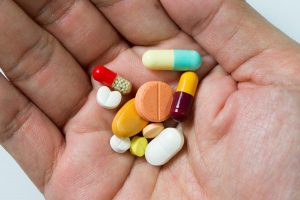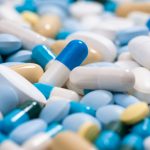Antidepressants, sold under brand names like Zoloft, Celexa, Paxil, and Prozac, are medications prescribed to treat moderate to severe depression. Two forms of antidepressants are commonly used; in the medical field, they are known as selective serotonin reuptake inhibitors (SSRIs) and serotonin and norepinephrine reuptake inhibitors (SNRIs).
Under normal circumstances, antidepressants are not considered addictive. They do not produce the same effects as substances like alcohol, opioids, or marijuana. Antidepressants do not produce euphoric feelings, addictive behaviors, or any of the side effects of addictive substances.
However, you can still develop a form of dependence on antidepressants. Addiction is also possible. Here is why, along with signs to watch out for.
Wrong diagnosis
Not all cases of depression are diagnosed correctly. Based on a study, doctors have incorrectly diagnosed depression in nearly 67 percent of patients. In turn, they were also prescribed antidepressants, which they did not really need.
 While doctors do not consider antidepressants to be addictive substances, these drugs can still lead to physical dependence. For one, if you suddenly stop taking these medications, you may experience withdrawal symptoms such as:
While doctors do not consider antidepressants to be addictive substances, these drugs can still lead to physical dependence. For one, if you suddenly stop taking these medications, you may experience withdrawal symptoms such as:
- Hand tremors
- Nausea
- Fever
These symptoms may become so uncomfortable that to make them go away, you would resort to taking more antidepressants. Eventually, you will find it really hard to stop taking the drugs because of withdrawal. By this time, you will have developed a physical dependence on them.
Antidepressant Abuse
 Doctors often prescribe these drugs because they have low abuse potential. In fact, these drugs have the most number of prescriptions in the United States. In spite of this, some people still abuse these drugs.
Doctors often prescribe these drugs because they have low abuse potential. In fact, these drugs have the most number of prescriptions in the United States. In spite of this, some people still abuse these drugs.
For those who abuse antidepressants, most of them think that the drugs will get them high. However, that is not how antidepressants work. They don’t produce feelings of euphoria, unlike other addictive substances. They do improve mood, but they won’t get people high.
Also, antidepressants do not have immediate effects. It can take more than a month to kick in. The drug molecules accumulate in the brain, and once there is enough, that is the only time the antidepressants will take effect.
Some people who are on antidepressant prescriptions may also abuse the drugs. Often, this starts by taking higher doses when they feel that the effects of the medications are not as strong as when they first took them.
Altering your dose by yourself is not a good idea. If you think the antidepressants are no longer giving you relief, tell your doctor right away. Adjusting your dosage is the doctor’s job. He may even put you on different medications instead.
If you take higher doses without doctor’s orders, you are more likely to become dependent on the drugs. Once your body is used to the higher dose, you will need to take that much for the medications to take effect. Later on, it will become a vicious cycle of taking higher doses and the drug no longer having noticeable effects on you.
Here are some of the symptoms of antidepressant abuse:
- Confusion
- Lack of emotion
- Paranoia
- Hallucinations
- Headaches
- Insomnia
- Seizures
- Irritability
- Agitation
- Weight gain
- Increased appetite
- Shaking
- Sore throat
- Sexual dysfunction
- Blurred vision
Also, high doses of antidepressants have been shown to increase suicidal tendencies in teens and young adults (13 to 25 years old).
Those with suicidal tendencies brought about by antidepressant abuse may show the following signs:
- Giving away belongings
- Having no future plans
- Suddenly composing a last will
- Mood changes
- Insomnia
- Oversleeping
- Feeling guilty or worthless
- Loss of interest in hobbies
- Abusing drugs and/or alcohol
If you or someone you know is showing these signs, ask for help from a mental health professional right away. Do not brush these off; the sooner you get help, the more likely you can help save your life or a loved one’s life.
Combining antidepressants with other substances
People who abuse antidepressants often do not take the drugs on their own. Antidepressants do not give them a euphoric feeling, so they would combine the drugs with alcohol or other substances.
Most users drink alcohol as well in an attempt to intensify the effects of antidepressants. In effect, this increases the chances of developing alcohol use disorder. Also, taking alcohol with antidepressants puts users at a much higher risk of overdose. It can also make depression worse.
Signs of addiction
People who abuse antidepressants normally do not get addicted to those drugs. Instead, they get addicted to other substances they take along with antidepressants.
Those with depression are at greater risk. If they are on antidepressant medications, and they feel no effects, they may turn to other substances to make them feel better. However, other substances may interfere with the action of antidepressants, rendering them ineffective. If that happens, the tendency to abuse other substances increases.
If you or a loved one becomes addicted to another substance, these signs may show up:
 Ignoring family, work, or school responsibilities
Ignoring family, work, or school responsibilities- Isolation
- Spending much less time with friends and family
- Wanting to quit substance use but all attempts are not successful
- Ditching hobbies or other activities to have more time to use substances
When you or a loved one is struggling with these, it’s best to get professional help as soon as you can. Addiction is not a hopeless case; it is a condition that can be treated.
Treating antidepressant abuse
You should not stop taking these drugs “cold turkey.” This can produce withdrawal symptoms, making the process of quitting highly uncomfortable.
Instead, the best way is to reduce your dose over several weeks. That way, withdrawal is much more tolerable. This is best done under the supervision of a medical professional.
If you still have depression, it’s best to find alternative treatments for your condition. Consult with a mental health professional to know your best options. You may be advised to go through behavioral therapies, which can be more effective than antidepressants in treating your condition.
In some cases, inpatient rehab may work best in overcoming antidepressant abuse.


